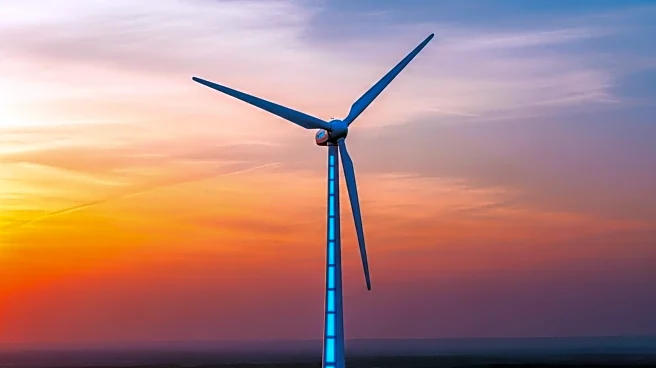What's Happening?
India is grappling with significant energy challenges as it attempts to transition to a green, clean energy system. The country is experiencing frequent and severe heatwaves, which are increasing the demand for cooling and straining its electricity generation capacity. Despite being the third-largest greenhouse gas emitter globally, India argues that its per capita emissions are low compared to developed nations. The country is heavily reliant on coal, which accounts for about 70% of its electricity generation. However, India is also investing in renewable energy sources such as solar and wind, and aims to expand its nuclear energy capacity. The government has announced major investments in green hydrogen and ammonia projects, aiming to produce 5 million metric tonnes by 2030.
Why It's Important?
India's energy transition is crucial not only for its own development but also for global climate change efforts. As a major emitter, India's actions have significant implications for global carbon emissions. The country's reliance on coal poses environmental and health challenges, but its investments in renewable energy could set a precedent for other developing nations. The transition is also vital for India's economic growth, as reliable energy is essential for industrial and social development. However, the country faces criticism from developed nations for not doing enough to mitigate climate change, highlighting the ongoing debate over historical responsibility and equity in global climate policies.
What's Next?
India is expected to continue its push for climate finance at international forums, emphasizing the need for developed countries to support developing nations in their energy transitions. The country is likely to advocate for fair financing mechanisms at the upcoming COP30 in Brazil. Domestically, India will need to balance its energy needs with environmental concerns, potentially leading to more strategic and targeted energy policies. The government may also focus on improving energy access and reliability, particularly in rural and low-income areas, to support its broader development goals.
Beyond the Headlines
India's energy transition highlights the ethical and equity issues in global climate negotiations. The principle of common but differentiated responsibilities remains a cornerstone of India's climate policy, emphasizing the need for developed countries to lead in reducing emissions. The country's reliance on coal underscores the challenges of balancing economic growth with environmental sustainability. Additionally, India's investments in renewable energy could drive technological innovation and create new economic opportunities, potentially reshaping its energy landscape in the long term.











